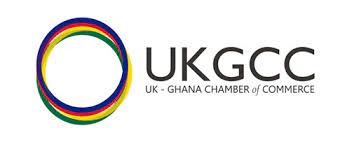The UK-Ghana Chamber of Commerce (UKGCC), in its latest business climate report, has revealed that only a small proportion of businesses are confident that the Africa Continental Free Trade Area (AfCFTA) can be a game-changer to companies and bring about a boom in business.
The survey, which sought to among other things gauge the preparedness of businesses to take advantage of opportunities presented by AfCFTA, such as major trade deals, indicated that only 18.5 percent of respondents were confident that Ghanaian companies can take advantage of the deal. The rest either believed it will be tough, very tough, or are not sure how Ghanaian companies will fare under the AfCFTA.
To capture the perception of businesses on recent policy and regulatory developments, the report also presented respondents with the opportunity to rate 10 business environment components: namely access to capital, presence of quality infrastructure, taxation policy, telecommunications facilities, and quality of labour.
The others are: regulatory framework, quality of government processes, availability of logistics partners and other service providers, utilities, crime-free environment, security and effectiveness of the legal system.
Access to capital had the highest negative rating among the businesses. Capital once again topped the list of the costliest business environment component, presenting a two-pronged problem – poor access and high cost.
Again, comparing the 2020 ratings with those in the 2019 report, access to capital topped the list of those deemed to be declining. This was followed closely by land, especially in urban areas where its acquisition can be very cumbersome, followed by infrastructure and quality of government processes.
However, in assessing changes in the business environment components over the last five years, a majority of businesses surveyed indicated that telecoms facilities available for business operations has been improving over the last five years, followed by availability of power and presence of quality infrastructure in second and third respectively.
COVID-19 Businesses Support Impact
The most frequent effects of the pandemic on Ghanaian businesses as revealed by the survey results were decreased revenues, financial challenges, increased cost of production, supply chain challenges and workforce challenges. Companies adopted a diverse range of strategies to cope with the pandemic; the most common one being, working from home, followed by online sales.
Less than 10 percent of companies laid-off workers during the pandemic, while only 1.5 percent filed for bankruptcy. The results show that the combination of strategies adopted did help companies to stay in business.
Notwithstanding, it will be recalled that government put in place some COVID-19 support schemes to support businesses. The report also revealed that more than half of those who received some of these supports indicated that the support did not help their businesses.
This is intriguing, given that majority of the businesses faced challenges with decreasing revenues and increasing costs, while cost of capital was deemed high. It is unclear why support would not be helpful in a crisis situation such as COVID-19 induced. It does however suggest that some business support schemes may not be aligned to the needs of businesses in their design or implementation, or both – even if well intended.
The UKGCC report recommends among others that attention should be paid to capital access and cost, stressing that addressing this issue will have a significant impact on the post-crisis recovery of businesses.










